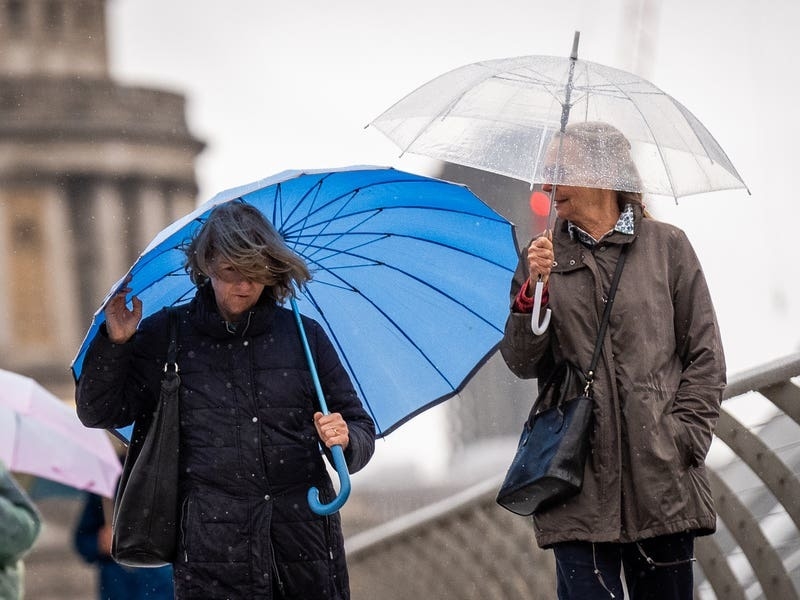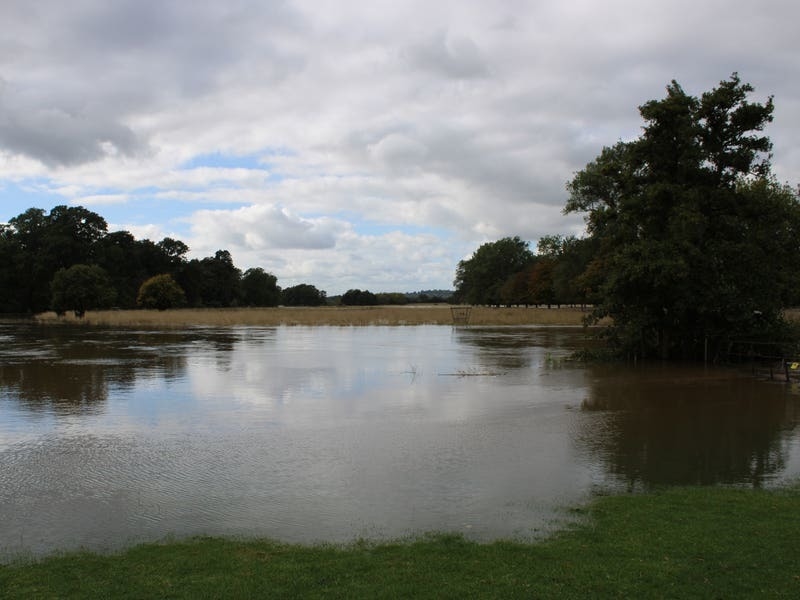
Chicago Mayor Brandon Johnson has been vocal about wanting the Bears to stay in Chicago, and this year alongside team CEO Kevin Warren, he made his pitch: a new lakefront stadium that would depend on taxpayer money. The presentation in April sparked a discussion about public funding for new sports stadiums in Tribune Opinion that included the questions: How important are sports stadiums to Chicagoans? Are there any other places the Bears can go? Do we want a private company taking over a large chunk of the lakefront? And how can the Bears get this project done without tapping into taxpayer dollars? Here is a look back at this discussion in excerpts. Feb.
18: Will Johnson, “Chicago sports teams are crucial to fans. New stadiums? Not so much.” Our sports devotion runs deep.

Four of every five Chicago-area adults say they’re a fan of at least one of the city’s major league teams, according to The Harris Poll. A majority (57%) of Chicago and Cook County residents call themselves devotees of the Bears, while roughly half follow the Bulls and the Cubs and 2 out of 5 root for the Blackhawks and White Sox. Running as deep is the itch by the Bears and the White Sox to move.
The Bears have conducted a very public search for a new home, even buying property in Arlington Heights for a domed stadium, though with negotiations faltering there over tax breaks, they are eyeing a spot in the city, near Soldier Field. The Sox, for the time being at least, are pitching a sport-entertainment complex in the South Loops, though owner Jerry Reinsdorf continues to flirt with Nashville, Tennessee, as both a fallback and negotiating lever. Both teams reportedly want public funds — from the same pot of money, no less — to help them build their new fields.
But that’s where most city and suburban residents alike draw the line, according to our polling. Virtually everybody here (94%) says sports are an important part of Chicago’s culture, and three-quarters of Chicagoland adults agree that losing a pro team would hurt the city. But 60% also say public funding of a sports stadium is a bad use of taxpayer money.
(This puts them at odds, by the way, with Americans as a whole; a slight majority of the country endorses public financing of pro sports facilities.) The Chicago findings are meaningful. Even if every non-sports fan in our poll is against public subsidies for sports owners, half of all self-identified fans would have to concur to reach that 60% supermajority.
A rendering shows a new enclosed stadium plan with open space access to the lakefront. (Manica) Renderings of a new state-of-the-art enclosed stadium with open space access to the lakefront were released by the Chicago Bears on April 24, 2024. (Manica) An artist's rendering of a new state-of-the-art enclosed stadium with open space access to the lakefront was released by the Chicago Bears on April 24, 2024.
(Manica) Renderings of a new state-of-the-art enclosed stadium with open space access to the lakefront were released by the Chicago Bears on April 24, 2024. (Manica) Renderings of a new state-of-the-art enclosed stadium with open space access to the lakefront were released by the Chicago Bears on April 24, 2024. (Manica) Renderings of a new state-of-the-art enclosed stadium with open space access to the lakefront were released by the Chicago Bears on April 24, 2024.
(Manica) Renderings of a new state-of-the-art enclosed stadium with open space access to the lakefront were released by the Chicago Bears on April 24, 2024. (Manica) Renderings of a new state-of-the-art enclosed stadium with open space access to the lakefront were released by the Chicago Bears on April 24, 2024. (Manica) Renderings of a new state-of-the-art enclosed stadium with open space access to the lakefront were released by the Chicago Bears on April 24, 2024.
(Manica) Renderings of a new state-of-the-art enclosed stadium with open space access to the lakefront were released by the Chicago Bears on April 24, 2024. (Manica) Renderings of a new state-of-the-art enclosed stadium with open space access to the lakefront were released by the Chicago Bears on April 24, 2024. (Manica) An artist's rendering shows a plan for an enclosed stadium with open space access to the lakefront was released by the Chicago Bears on April 24, 2024.
(Manica) A rendering shows a new enclosed stadium plan with open space access to the lakefront. (Manica) April 30: Marj Halperin, “With Bears, Chicago doesn’t seem to have secured a fair deal for taxpayers” Indeed, it didn’t take long for the Tribune to blow a football field-sized hole in the mayor’s promise, telling us that the true cost to the public of a new Bears stadium would be billions of dollars more over time. Technically, this is not a “new tax”; the long-term financing costs would require significant additional public revenue, money that otherwise could be redirected to some of the city’s most pressing needs.
This, on top of an avalanche of details omitted from last week’s dog-and-pony show, points to hidden costs for taxpayers and how badly (Mayor Brandon) Johnson was played by the Bears. Green space for high school team championships, “additional green and open space with access to the lakefront for families and fans on the Museum Campus,” as WBEZ reported, and other amenities Johnson characterized as the “public benefit” he wrested from the Bears? They’re not included even in a phony $4.7 billion budget.
So, if we want those amenities, we’ll be adding it to the billions taxpayers would fund. The projected new revenue from hosting a Super Bowl, major concerts and extended artist “residencies” that (Bears President Kevin) Warren promised to help fill city coffers? Only Gov. J.
B. Pritzker is telling the truth, saying “(The Bears are) asking to keep all of the revenue from other events that might take place at this stadium. You know, if there’s a Beyonce concert, they want all of that revenue too, and everything else that might happen there.
” When flatly asked by Crain’s whether the Park District could potentially receive less revenue from the new stadium than it currently does at Soldier Field, Karen Murphy, Bears vice president of stadium development, said it’s “too early” to determine. It’s hard to understand how Johnson could allow the Bears to scoop up the lion’s share of stadium revenue, given his insistence that this will be a “publicly owned” stadium leased to the Bears for private use. That’s because it’ll be publicly owned in name only.
This wordplay is too clever by half, aimed at skirting the Lakefront Protection Ordinance’s prohibition on privately owned developments on the lakefront. Friends of the Parks likely won’t stand for this thinly veiled trick, and neither should we. May 10: David Greising, “The Bears’ pitch for a lakefront stadium fizzled.
Here’s how they can move forward.” The McCaskey brothers, from left, Brian, George and Patrick, chat before a news conference at Halas Hall on Dec. 2, 2024, in Lake Forest.
(Stacey Wescott/ Chicago Tribune) Recapitalizing the Bears might be needed. The McCaskeys, who control the team, are pikers compared to the billionaire class that makes up most of the NFL’s ownership groups. Yes, the Bears are committing roughly $2.
3 billion toward the new stadium — but much of that is expected to come from other people’s money. Instead of borrowing, the McCaskeys could sell shares in the team. Just one example: Billionaire Pat Ryan already owns a chunk of the Chicago Bears Football Club Inc.
Invite Ryan to buy more shares, and his equity investment would strengthen the team’s balance sheet, reducing the borrowing needed for the McCaskeys to make the deal work. The Bears would benefit from Ryan’s savvy, besides. Look at what he accomplished in Evanston, overcoming strong local opposition to get approval for a new Northwestern University football stadium he is funding.
June 7: Aurora officials, “Why Aurora is the ideal choice for the Bears’ new stadium” Downtown Aurora on Feb. 19, 2020. (Stacey Wescott/Chicago Tribune) The prospects of litigation, funding challenges and competing interests mean that negotiations with any other city could last years.
Aurora will move now on a magnificent domed stadium that benefits everyone. We have properties ripe for development and incentives that are unmatched. Fans won’t be reading about stalled negotiations or potential lawsuits if the Bears choose Aurora.
That’s because we’re on a winning streak and view a new Bears stadium as our next successful play. Please understand — we aren’t simply trying to get in the game. We are saying loudly, “We want you here.
” Aurora has many advantages that few communities in Illinois can match. Our community is closer and more accessible than most people realize. Whether commuting by car, rail or plane, Aurora has the infrastructure to welcome everyone to our ever-expanding community.
With three major interstate interchanges, two of the most used Metra stops in Illinois and easy access to two international airports and one regional airport, visitors can get here from anywhere. Sept. 8: Edward Keegan, “With stadium plans, the Bears are proposing a barely veiled takeover of the lakefront” A parking lot and Waldron Deck south of Soldier Field on the lakefront, March 11, 2024, where the Bears have proposed building a new domed stadium.
(Brian Cassella/Chicago Tribune) The new stadium, which would hold 60,000 to 70,000 fans for football, is a dull structure by any architectural standard. Sitting within yards of the Lake Michigan shore, the stadium would offer no acknowledgment of this prime locale. Its primary nod to Chicago would be an enormous window at its north end placed to frame the downtown skyline.
Little else would acknowledge the building’s place in the world, much less this city. If a view of the Loop is the most important thing to the Bears and NFL, that could be done elsewhere in the city, without using public lakefront land. I will give them this: The Chicago Bears are thinking big.
But they’re playing with the house’s money. And we are the house. Let’s be clear about what’s driving what.
A private corporation is looking to mold a large portion of Chicago’s precious lakefront into an entertainment district that supports its private operations. Sure, there might be a public-private component to some of the new facilities, but Chicago has historically kept private ventures off the public lands of the lakefront. The Bears occupancy of Soldier Field should remain the anomaly, not the norm.
A facility tailor-made for fewer than a dozen days a year should not be driving the development of land dedicated to public use. The Bears’ suggestions of further development demonstrate a vision of public land as a commercial zone similar to Navy Pier. These are exactly the types of development that Montgomery Ward, (Daniel) Burnham and generations of Chicago’s civic visionaries have worked to keep off our beloved lakefront.
Submit a letter, of no more than 400 words, to the editor here or email [email protected] ..










